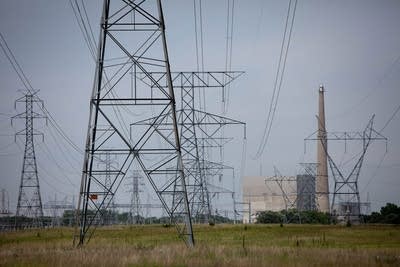Regulatory environment affects Monticello nuclear plant upgrade costs

Xcel Energy's Monticello nuclear power plant is going back online this week after an upgrade to boost its power generating capacity.
But unforeseen complications and new federal regulations have doubled the Xcel's original budget for upgrades at the plant, according to the company's filings with the state Public Utilities Commission.
In 2008, Xcel filed to increase the power output of the Monticello plant by 12 percent, from 600 megawatts to 671 megawatts. At the time, the utility estimated it would cost $320 million. According to documents Xcel Energy filed this week with the state, the project is now expected to cost close to $640 million, or so the company estimated in January.
Documents filed with the utilities commission show that as far back as December 2010, Xcel knew the Monticello project was over its original cost estimate. The company, which wants rate payers to cover part of the costs of the project, has asked for a rate increase of 7.8 percent that would generate $209 million a year.
Create a More Connected Minnesota
MPR News is your trusted resource for the news you need. With your support, MPR News brings accessible, courageous journalism and authentic conversation to everyone - free of paywalls and barriers. Your gift makes a difference.
Earlier this month, an administrative law judge recommended cutting Xcel's request to 4.7 percent.
In a statement, the company said it was "not appropriate" at this point to comment about the Monticello upgrade project as the costs are part of a rate increase being considered by the utilities commission. Instead, Xcel referred questions to documents and other filings with the state.
In March testimony submitted to the public utilities commission, Timothy O'Connor, Xcel's Chief Nuclear Officer, said that the Monticello upgrade "is a large, complex project with many intricate components that required changes from original plans."

In addition to changes by the Nuclear Regulatory Commission, O'Connor said in his testimony that the increase in costs were in part due to unanticipated factors. Other costs, he said, came as the project progressed from its "conceptual design to the detailed engineering necessary to qualify equipment for use in a nuclear power plant."
In November, the company requested a rate increase of 10.7 percent that would have generated $285 million a year. Laura McCarten, an Xcel regional vice president, said then that part of the rate increase was to help the company pay for the upgrades and increased power output of the Monticello plant.
"In 2013 we have a lot of the investments that we're making into our nuclear plants coming into service," McCarten said then. "So those investments are increasing our costs of doing business in 2013, and so that's what we have to ask for this rate [increase]."
Big cost overruns on nuclear upgrades aren't unusual.
"The incentives would be completely different if Minnesota had competition in electricity ... People are basically placing bets with other people's money."
According to the testimony given by Xcel's O'Connor, nuclear facilities in Mississippi, Florida and Tennessee have projects that are 60 to 100 percent more expensive than initially thought.
But Andrew Kleit, professor of energy and environmental economics at Penn State University, said one reason for the increased costs is the way some states govern utilities.
"Xcel points [out] that this has happened in other jurisdictions -- and all those jurisdictions have the same flawed regulatory system that Minnesota does," he said.
That system Kleit said, is more highly regulated than states where utilities compete.
"Cost overruns, at least potentially, are paid by the rate payer rather than the company that does it," he said. "The incentives would be completely different if Minnesota had competition in electricity ... People are basically placing bets with other people's money."
Industry analysts say few nuclear investment projects are going forward in states where the energy industry is deregulated.

If utilities are operating on a market basis they have an even greater incentive to keep costs low for shareholders, said Travis Miller, director of utilities research at Morningstar.
"Nuclear's still significantly more economic to run if you have the plant operating, than any other fossil fuel source," Miller said. "But to the extent that you're facing incremental investment needs, those economics look challenging."
Miller said nuclear plants in both deregulated and regulated states are closing because they needed huge investments that would cost billions of dollars -- something the utility companies deemed was not worth the costs.
"Ultimately even in a regulated system the regulators have the final say as to how much recovery Xcel is allowed and on what projects they're allowed to recover rates," he said.
That's part of what the public utilities commission will be considering next month when it takes up Xcel's rate case.
